GCAMM Summary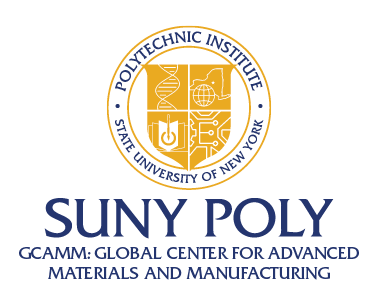
The Global Center for Advanced Materials and Manufacturing (GCAMM) is proposed based on the SUNY Poly’s strategic plan focus on Materials, Robotics and Advance Manufacturing. This proposal is written within the framework of the vision, mission and values of SUNY Poly; to be the nation’s premiere polytechnic. The main components necessary for the establishment of the center are synchronized in this proposal.
The key thematic areas outlined includes:
Advanced Manufacturing and Alloy Design,
Renewable Energy Generation and Storage Materials/Devices,
and Sustainable Materials for Smart Infrastructure.
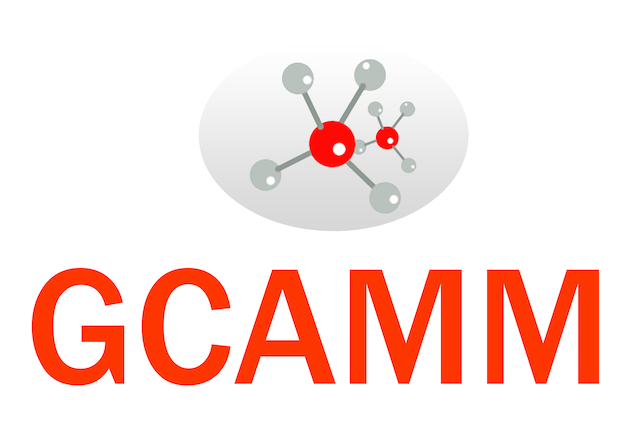 These areas were chosen in alignment with the emerging gaps in research and demands in the industry. The gaps and demands identified would be addressed through fundamental and applied research, education, workforce development, innovation, industrial engagements and technology transfer. Major emphasis is also placed on the development of additive manufacturing techniques that inculcate artificial intelligent and machine learning, cyber and coupled cyber repair manufacturing, defect imaging and training interventions, to solve problems. The execution of activities in this proposal would be done in three phases. The first phase of the project which is premised on the short-term goals, focuses on the establishment of the center in terms of infrastructure, setup of advisory board and development of workforce and education programs. Proposals for grants would also be initiated in this stage. The second phase (based on medium-term goals) focuses on research, innovation, education and workforce development.
These areas were chosen in alignment with the emerging gaps in research and demands in the industry. The gaps and demands identified would be addressed through fundamental and applied research, education, workforce development, innovation, industrial engagements and technology transfer. Major emphasis is also placed on the development of additive manufacturing techniques that inculcate artificial intelligent and machine learning, cyber and coupled cyber repair manufacturing, defect imaging and training interventions, to solve problems. The execution of activities in this proposal would be done in three phases. The first phase of the project which is premised on the short-term goals, focuses on the establishment of the center in terms of infrastructure, setup of advisory board and development of workforce and education programs. Proposals for grants would also be initiated in this stage. The second phase (based on medium-term goals) focuses on research, innovation, education and workforce development.
The research and programs designed during the first phase would be started at this stage. The next phase will then focus on sustainability and assessment/evaluation of the center. The Department of Defense, Department of Energy, National Science Foundation and companies/foundations in and out of the New York state are potential funding sources and beneficiaries of the proposed work, along with companies such as Indium Corporation and Global Foundries that could benefit from technology transfer from GCAMM.
Areas for Research and Innovations: The GCAMM initiative will focus on but not limited to the following titles for research and collaborations:
3D Printing and Manufacturing of Next Generation Alloys:
This project focuses on the use of additive manufacturing as a cost-efficient method of producing next generation, Ti – based, Ni – based, steel, bronze – base, brass - base and complex concentrated alloys. In this work ingot and powder metallurgy approaches would be used for the fabrication of new and existing alloys. The metal powders will be made using an atomizer process. Additive manufacturing techniques with artificial intelligent and machine learning, cyber and coupled cyber repair manufacturing, defect imaging and training interventions will then be used to fabricate samples from the powders. Mechanical, tribological, corrosion and oxidation tests would be carried out on the samples. Post processing of fabricated parts would also be carried out to minimize heterogeneity in the parts. This project will be targeted towards repairs of ships, automobile and manufacturing of new parts.
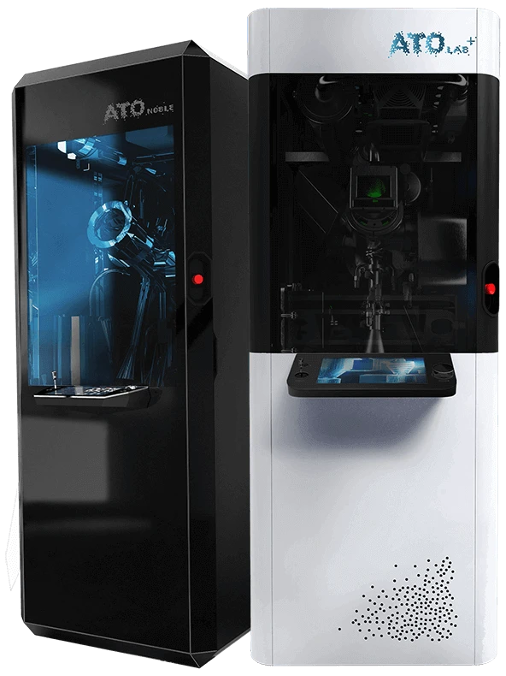
Metal Powder making and Printing
Superlubricity and Additive Manufacturing of Multifunctional Graphene Structures:
The isolation of graphene as a 2D carbon material has presented new possibilities in the development of advance technologies from the nano to macroscales. In this study, a novel method of producing graphene from biowaste is proposed. This presents a low-cost approach of directly depositing the exceptional material on metallic and nonmetallic substrates. Graphene variants with varying structures would be deposited on complex concentration alloys, steel, Ni invar, Ti alloys and Si/SiO2 substrates using high temperature biowaste treatment. The substrates would be characterized and their tribological, mechanical, electrical and electronic properties would be evaluated. The metallic substrates will be developed and used for low friction applications such as pistons, valves, gears and bearings. The nonmetallic substrates on the other hand would be developed and used for Si-based devises and sensor applications.
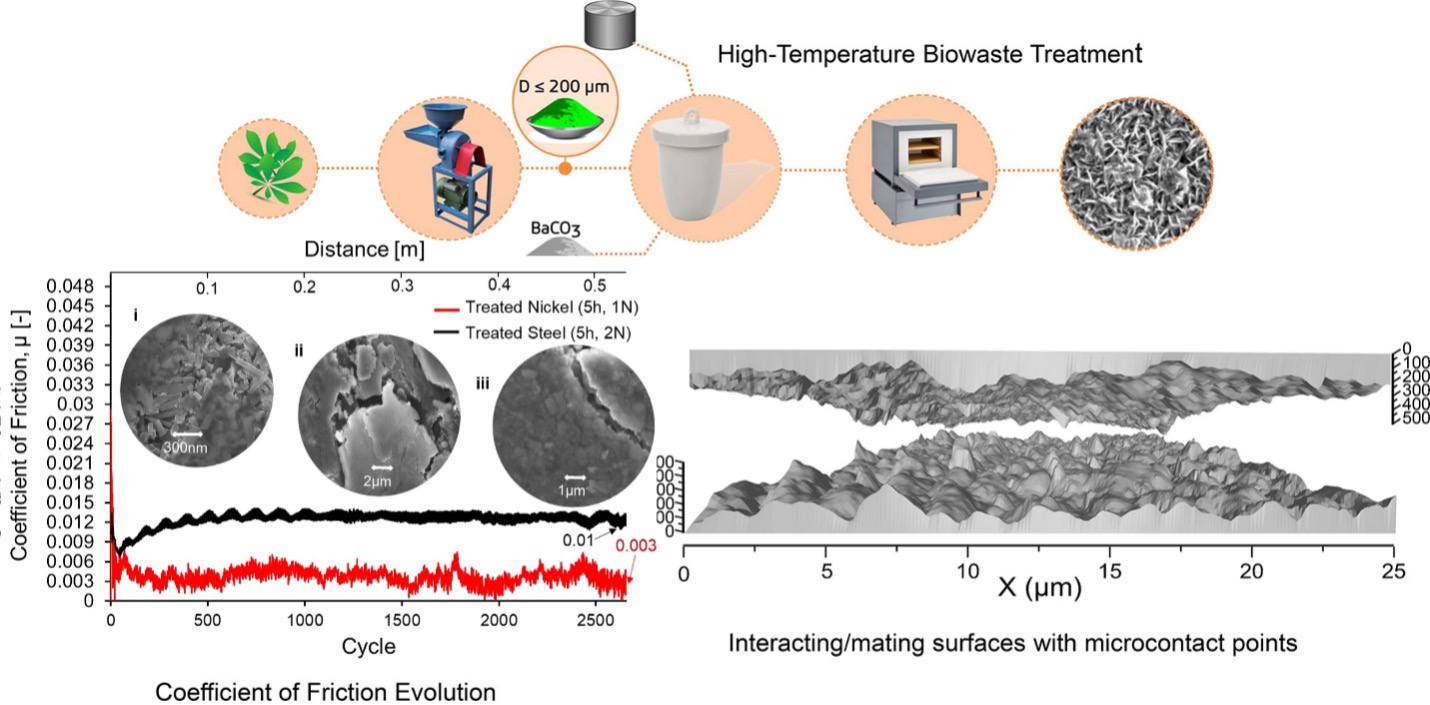
Superlubricity Enabled by Graphene Nanocomposite Films
Materials for Sustainable and Smart Infrastructure: A Multi-disciplinary Approach:
This proposed project will develop a new generation of eco-friendly mycelium-based composites for applications in smart and sustainable infrastructure. Mycelium will be used as a green binder of green earth-based and asphalt-based construction materials that are used in the construction of green buildings and roads. The underlying strengthening and toughening mechanisms will be elucidated along with the potential for the development of smart materials and structures with embedded sensors. The implications of the results will be explored for the scale-up of smart and sustainable materials that are relevant to green buildings and roads.

Morphological characterization of mycelium: (a) optical image of living mycelium in a culture medium (b) SEM image of mycelium network (c) hyphae size distribution with mean diameter of 1.19 ± 0.5 μm.
Pressure Assisted Manufacturing of Renewable Energy Devices:
The consumption of energy globally is increasing precipitously. This is due to the growing needs of a growing human population. In this work pressure assisted perovskite solar cells and Li-ion based solid state batteries is proposed. Computational, machine learning, analytical and experimental methods would be used to investigate into pressure effects on the system integration, performance and reliability of these solar cells and batteries. Spin coating, thermal deposition, spray coating and annealing would be the main treatment and deposition methods used. The surfaces and cross section of the cells and batteries would then be characterized with Scanning electron microscopy, Atomic Force Microscopy, spectrophotometer, Raman spectroscopy and transmission electron microscopy and solar simulating techniques. The results from this work would be elucidated for renewable energy technologies for the future.
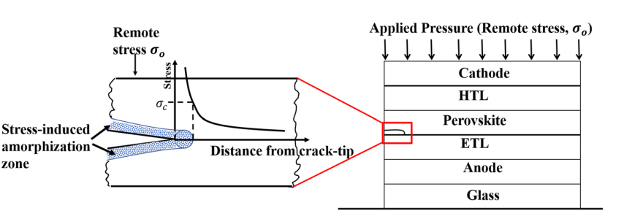
Schematic of multilayered structure of a perovskite solar cell subjected to remote pressure/stress.
Welding Process Design and Inspection:
Welding is at the heart of the industrial revolution. It is a metal fabrication process use to design and manufacture massive structural components 7,8. In this work, strain, gradient plasticity phenomenon, fatigue and the tensile strength of different weld joints configurations of conventional and complex concentrated alloys will be investigated. Nondestructive Inspections and characterization of the joints will be carried out to assess structural integrity. The variations in the mechanical properties and defects in the welded joints will be discussed with their microstructural differences and the underlining mechanisms. The impact of the results on welding joint design will also be elucidated.
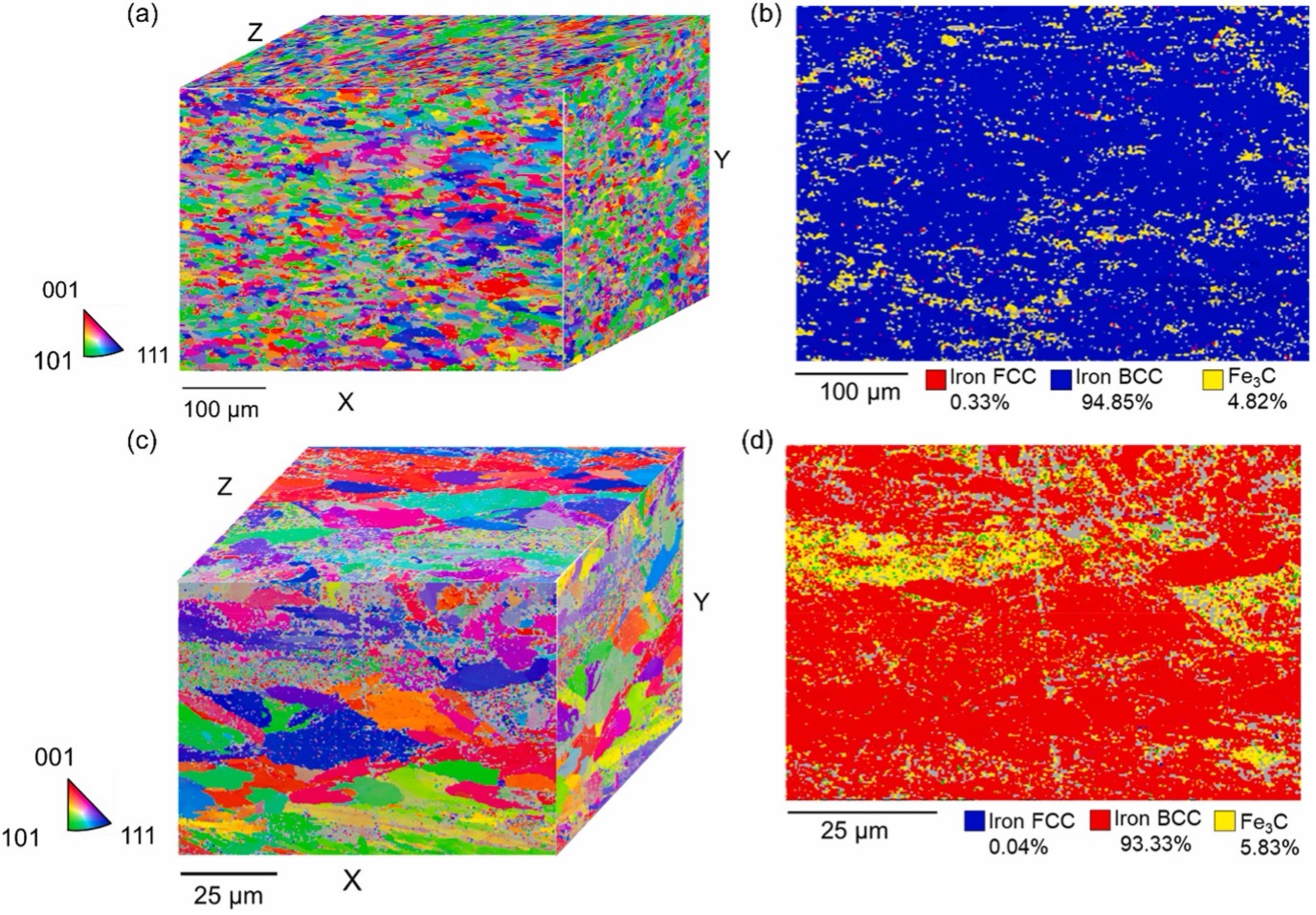
EBSD maps of the butt welded joint
Research Professionals
Wole Soboyejo
President, SUNY Poly
Wole Soboyejo is a Nigerian American materials scientist and engineer that is currently serving as the President of the State University of New York Polytechnic Institute (SUNY Poly). His research focuses on materials for health, energy and the environment. Soboyejo was born in Palo Alto, CA, to Alfred and Anthonia Soboyejo, where Alfred received PhD from Stanford University in 1965. The family returned to Nigeria, where Wole Soboyejo grew up on the campus at the University of Lagos. Between 1977 and 1982, he was sent to an English Boarding School (Kelly College) before proceeding to King’s College London (1982-1985) to receive a BSc in mechanical engineering. He then went on to Cambridge University (1985-1988) where he received his PhD in materials science and metallurgy in 1988. Subsequently, Soboyejo moved to the United States to work as a Research Scientist for McDonnell Douglas Research Labs (1988-1992). He was also a Principal Research Engineer at the Edison Welding Institute (1992) before joining the engineering faculty at The Ohio State University (1992-1999). Soboyejo was a Visiting Martin Luther King Professor at MIT (1997-1998) before moving to Princeton University between 1999 and 2016. Soboyejo is one of the founders of the African University of Science and Technology (AUST) and the Nelson Mandela African Institute of Science and Technology (NM-AIST). He has also served as President of AUST (2012-2014); Dean of Engineering (2016-2018), Provost (2018-2022) and Interim President (2022-2023) at the Worcester Polytechnic Institute (WPI). Soboyejo was elected to the US National Academy of Engineering in 2021. He is also a member of the World Academy of Science (TWAS), the African Academy of Science, the Nigerian Academy of Science and the Nigerian Academy of Engineering. Soboyejo served on the Scientific Advisory Board of the UN Secretary General between 2014-2017).
References:
- Precious O. Etinosa, Ali A. Salifu, Azeko T. Salifu, John D. Obayemi, Emmanuel O. Onche, Toyin Aina, Winston O. Soboyejo, Self-Organized Mycelium Biocomposites: Effects of Geometry and Laterite Composition on Compressive Behavior, Journal of Mechanical Behavior of Biomedical Materials, doi:10.1016/j.jmbbm.2023.105831, 2023.
- R. Ichwani, S. Price, O. K. Oyewole, R. Neamtu and W. Soboyejo, Using Machine Learning for Prediction of Spray Coated Perovskite Solar Cells Efficiency: From Experimental to Theoretical Models, Materials & Design, doi: https://doi.org/10.1016/j.matdes.2023.112161, 2023.
- John Adjah; Kingsley Ikechukwu Orisekeh; Ridwan Ahmed; Mobin Vandadi; Benjamin Agyei-Tuffour; David Dodoo-Arhin; Emmanuel Nyankson; Joseph Asare; Nima Rahbar; Winston O Soboyejo, Cyclic-Induced Deformation and the Degradation of Al-Doped LLZO Electrolytes in All-Solid-State Li-Metal Batteries, Journal of Power Sources, Vol. 594, 234022, https://doi.org/10.1016/j.jpowsour.2023.234022, 2024.
Dr. Tabiri Kwayie Asumadu
Mechanical Engineering Department, Doctor of Philosophy
asumadt@sunypoly.edu
Dr. Tabiri Asumadu is a post-doctoral research fellow at the State of New York Polytechnic Institute (SUNY Poly). Prior to his current role, he served as the Head of Department of Materials Engineering at the Sunyani Technical University (STU) in Ghana over the past 10 years. He was a Visiting Scholar and postdoctoral research fellow at the Worcester Polytechnic Institute (WPI). Tabiri was born and raised in Ghana, where he received his Bachelors and doctoral degrees from the Kwame Nkrumah University of Science and Technology (KNUST). He also obtained a Masters degree in materials engineering from the Royal Institute of Technology (KTH) in Sweden. Tabiri has recently developed a new biochemical method for the nanofabrication of graphene on substrates that are relevant to automotive, aerospace, microelectronic and biomedical applications. He has also shown that the novel graphene structures are super-lubricious, while resulting in near zero friction during sliding contact. Tabiri has consulted for the Ghana Tertiary Education Commission. He is also one of the founders of the Young African Scientists Group (YASG).
References
- T.K. Asumadu, M. Vandadi, D.E.P. Klenam, K. Mensah-Darkwa, E. Gikunoo, S. Kwofie, N. Rahbar & W.O. Soboyejo, Robust macroscale superlubricity on carbon-coated metallic surfaces, Appl. Mater. Today, 37, 102140, 2024. (IF : 8.3)
- Klenam, D.E.P., Asumadu, T.K., Vandadi, M., Rahbar, N., McBagonluri, F., & Soboyejo, W.O. (2023). Data science and material informatics in physical metallurgy and materials science: an overview of milestones and limitations, Results in Materials, 19, 100455.
- Asumadu, T.K., Mensah-Darkwa, K., Gikunoo, E., Klenam, D.E.P., Vandadi, M., Rahbar, N., Kwofie, S., & Soboyejo, W.O. (2023). Strain gradient plasticity phenomenon in surface treated plain carbon steel, Materials Science and Engineering A, 871, 144806.
Bill Thistleton
Associate Professor of Mathematics
thistlet@sunypoly.edu
- Ph.D. in Applied Mathematics 1996, SUNY at Stony Brook, Stony Brook, NY
- Contaminant Transport and In-Situ Bioremediation in Porous Media
- Cert. in Statistical Theory and Methods 2005, Colorado State U., Fort Collins, CO
- MA in Mathematics 1987, SUNY at Potsdam, Potsdam, NY
- BS in Electrical Engineering 1983, Clarkson University, Potsdam, NY
- Mathematics, Statistics, Machine Learning and AI, Computational Theory and Practice
- Programming in C, Python, Microsoft Visual Studio, Matlab, R, SPSS, SAS, etc.
- Excellent Writing and Communication Skills
- Associate Professor of Mathematics September 1993 - Present
- SUNY Polytechnic Institute, Utica NY 13504
Teaches a wide range of graduate and undergraduate classes, including: Statistics, Probability, Applied Regression Analysis, Real and Complex Analysis, Linear Algebra, Differential Equations, Numerical Differential Equations, and Mathematical Modeling. Has served as Department Chair and Program Coordinator. Develops and delivers numerous workshops for area teachers and students. Conducts research in applied statistics. Coordinator of graduate program in Data Science and Analytics. SUNY Online Teaching Ambassador.
Dr. Desmond Klenam
Desmond Klenam (PhD) is an Assistant Professor (lecturer) in Physical Metallurgy and Material Science at the University of the Witwatersrand (Wits) in Johannesburg, South Africa, where he co-leads the Next Frontiers in Materials Research Lab. He is affiliated with Academic Development Unit of the Faculty of Engineering at Wits and serves as a Research Fellow at the Soboyejo Research Laboratory of SUNY Polytechnic Institute. Klenam is also a Principal Investigator at Academic City University in Ghana and was the 2022 Africa Oxford Visiting Fellow at Oxford Micromechanics Group in the University of Oxford. From 2021 to 2023, he was an International Visiting Scientist at Worcester Polytechnic Institute, United States. Previously, Klenam spent three years as a Consulting Advisory Analyst at Hatch Advisory, where his team won the 2021 Global Operational Excellence Award. A registered professional engineer in Australia and the UK, Klenam holds a PhD and MSc from Wits and a BSc from Kwame Nkrumah University of Science and Technology, Ghana. His research focuses on rational alloy design and physical metallurgy of structural metals (lightweight, steels and complex concentrated alloys) and metallic coatings for functional and structural applications, as well as corrosion and degradation of metallic materials. His work spans computational and experimental approaches, contributing to advancements in materials science and engineering. Outside his professional pursuits, Klenam enjoys table tennis, football, and fitness activities, maintaining a balance between his academic career and personal interests.
References
- Klenam, D.E.P., McBagonluri, F., Bamisaye, O.S., Asumadu, T.K., Ankah, N.K., Bodunrin, M.O., Andrews, A., & Soboyejo, W.O. (2024). Corrosion resistant materials in high-pressure high temperature oil wells: an overview and potential application of complex concentrated alloys, Engineering Failure Analysis, 107920. https://doi.org/10.1016/j.engfailanal.2023.107920
- Klenam, D., McBagonluri, F., & Soboyejo, W. (2024). Mechanical properties: Fatigue, Encyclopedia of Condensed Matter Physics, Second Edition, Vol. 3, 818 – 837. https://doi.org/10.1016/B978-0-323-90800-9.00186-4.
- Klenam, D.E.P., Asumadu, T.K., Vandadi, M., Rahbar, N., McBagonluri, F., & Soboyejo, W.O. (2023). Data science and material informatics in physical metallurgy and materials science: an overview of milestones and limitations, Results in Materials, 19, 100455. https://doi.org/10.1016/j.rinma.2023.100455.
- Asumadu, T.K., Mensah-Darkwa, K., Gikunoo, E., Klenam, D.E.P., Vandadi, M., Rahbar, N., Kwofie, S., & Soboyejo, W.O. (2023). Strain gradient plasticity phenomenon in surface treated plain carbon steel, Materials Science and Engineering A, 871, 144806. https://doi.org/10.1016/j.msea.2023.144806
Ibrahim Yucel
Associate Professor of Interactive Media and Game Design (IMGD)
yuceli@sunypoly.edu
Dr. Ibrahim Yucel is an Associate Professor of Interactive Media and Game Design (IMGD) at SUNY Polytechnic in Utica. He received his B.S. and Ph.D. degrees in Information Sciences and Technology from Pennsylvania State University. Yucel is a scholar of New Media, Digital Culture, Online Communities, and Game Studies. His research focuses on the evolving forms of communication and community taking place within Internet-enabled social groups and the use of video games in serious ways. Yucel is the Coordinator of IMGD, as well as teaching in Communications and Media Design and the Information Design and Technology masters program. His overall research interests include Socio-Technical Analysis, New Media, Digital Culture, Online Communities, Game Studies, Virtual/Augmented Reality, AI and Serious Games.
Recent Publications:
- Jofre A, Boylan K, Yucel I. (2022) “Building Convivial Educational Tools in the Twenty-First Century” in Freire and Illich Fifty Years Later, Rosa Bruno-Jofré, Michael Attridge, and Jon Igelmo, eds. (University of Toronto Press, forthcoming)
- Jofre A, Boylan K, Yucel I. (2021) Desarrollo de Herramientas de Educación Convivencial en el Siglo XXI: una propuesta desde las ideas de Paulo Freire, Ivan Illich, y los “Makers.” Espacio, Tiempo y Educación. Published online 2021.
- Yucel, I., & Edgell, R. (2015). Conceptualizing Factors of Adoption for Head Mounted Displays: Toward an Integrated Multi-Perspective Framework. Journal For Virtual Worlds Research, 8(2). doi:http://dx.doi.org/10.4101/jvwr.v8i2.7155
- Yucel, I. (2014) “Rules for Writing Rules: How Instructional Design Impacts Good Game Design.” Analog Game Studies. http://analoggamestudies.org/2014/10/the-rules-for-writing-rules-how-instructional-design-impacts-good-game-design/
- Yucel, I. (2012). The Influence of Memetic Primers in Online Comments in Video Game Blogs. Advances in Internet of Things, 2(3).
Capability
- Characterization Techniques: SEM-EDX, EBSD, Raman Spectroscopy, TEM, AFM, Optical Microscopy, FTIR
- Metal Making and Printing
- Metal forming : Sand casting, Forging, Rolling,
- Mechanical testing: Micro-indentation, Tensile, Fatigue, Fracture and Impact Toughness, Nanoindentation
- Heat treatment: Case hardening, Nitriding, carburizing, Carbonitriding, Pack cementation, Quenching, Tempering, Normalising, Annealing
- Tribology Testing: Friction, wear
- Biomedical Materials
- Biomedical Devices
- Solar energy generation
- Energy storage materials and devices
Publications and or Scholarly Work
- Klenam, D. E. P. et al. Data science and material informatics in physical metallurgy and material science: An overview of milestones and limitations. Results in Materials 19, 100455 (2023).
- Klenam, D. et al. Cold Spray Coatings of Complex Concentrated Alloys: Critical Assessment of Milestones, Challenges, and Opportunities. Coatings 13, 538 (2023).
- Asumadu, T. K. et al. Robust macroscale superlubricity on carbon-coated metallic surfaces. Appl Mater Today 37, (2024).
- Ichwani, R., Price, S., Oyewole, O. K., Neamtu, R. & Soboyejo, W. O. Using machine learning for prediction of spray coated perovskite solar cells efficiency: From experimental to theoretical models. Mater Des 233, 112161 (2023).
- Etinosa, P. O. et al. Fracture and Toughening of Mycelium-based Biocomposites. Mater Des 237, 112592 (2024).
- Klenam, D. E. P. et al. Welding of magnesium and its alloys: An overview of methods and process parameters and their effects on mechanical behaviour and structural integrity of the welds. Manuf Rev (Les Ulis) 8, 1–31 (2021).
- Asumadu, T. K. et al. Strain gradient plasticity phenomenon in surface treated plain carbon steel. Materials Science and Engineering: A 871, 144806 (2023).
- Mustafa, F. M., Kholidy, H. A., Sayed, A. F., Aly, M. H. & Elmisery, F. A. Optical fiber fronthaul segment in open radio access 5G networks: enhanced performance utilizing AFBG. Opt Quantum Electron 56, 1014 (2024).
Sponsors
SUNY Polytechnic Research Center Grant

